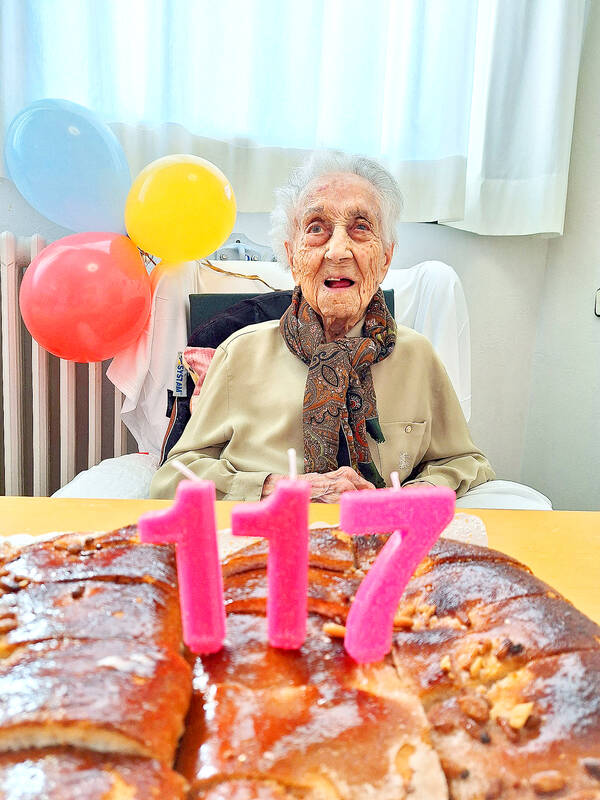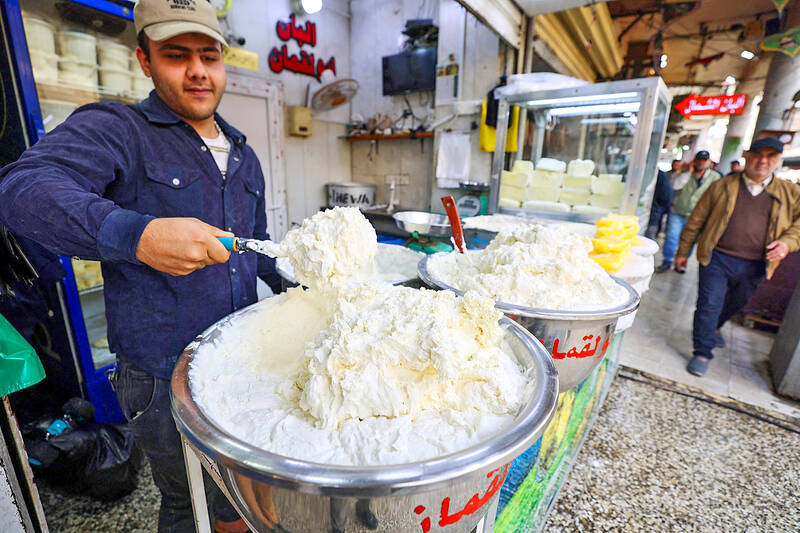Supercentenarians — humans who live beyond 110 years of age — are objects of great fascination in our death-fearing culture. Interviews with them inevitably demand to know that one simple ingredient that is the secret to their extraordinary longevity; was it a shot of whiskey before bedtime, maintaining good friendships, a happy marriage or always having a pet?
In the case of Spain’s Maria Branyas Morera — who was the world’s oldest person until she died at the very ripe old age of 117 last year — one possible answer to that question was yogurt.
The study attempting to get to the bottom of Branyas’s biological good fortune revealed that for the last couple of decades of her life, she ate three servings of yogurt a day. Analysis of her gut microbiome showed unusually high numbers of a beneficial bacteria known as bifidobacterium, which can be boosted by yogurt consumption, and a “microbiome that confers an increased likelihood for a healthy extended lifespan,” the researchers wrote.

Photo: Reuters
Before you rush out to your nearest supermarket and load a trolley with fermented dairy, there are a few things to know about Branyas and yogurt.
The first is she did a lot of things right, not just the yogurt, says gastroenterologist Emad El-Omar, director of the University of New South Wales Microbiome Research Center at St George hospital in Sydney.
LIFESTYLE AND GENES

Photo: AFP
She ate a Mediterranean diet, which is high in vegetables and fruit, wholegrains, legumes, nuts and seeds, and low in processed foods, red meat, added sugar and refined grains. This diet also provides exactly the right complex carbohydrates, dietary fiber and other nutrients for beneficial gut bacteria to thrive on.
“The Mediterranean diet is probably the healthiest diet in terms of its composition and how it feeds the microbiome,” El-Omar says. “If you’re eating a healthy diet and living a healthy lifestyle, that is reflected in the composition and the function of your microbiome, which then works for you instead of against you.”
Branyas didn’t smoke or drink alcohol, she exercised regularly, and spent lots of quality time with friends and family.
And she had good genes.
“She did the first thing right — she got the right parents,” says nutritionist Professor Clare Collins from the University of Newcastle. “She probably lived on a small island, no car, eating lots of seafood, walking up and down the hills, eating vegetables from the local market, and then adapting her dietary patterns as she went.”
So what role, if any, might yogurt have played in Branyas’s staying power?
GUT HEALTH
Yogurt is interesting because it has live bacteria in it, and in particular a type called lactobacillus, says Associate Professor Claus Christophersen, a microbiologist at Edith Cowan University in Perth. This is one of the bacteria that turns milk into yogurt, by feeding on the milk carbohydrates to produce lactic acid during the fermentation process, which then causes the milk proteins to coagulate.
Lactobacillus are also important bacteria for good gut health, although we generally have low levels of them, he says.
“If you have more of them, you tend to drop your pH in your gut, which is a good thing, so that actually keeps pathogens at bay a little bit easier, and it favors more of your beneficial bacteria if your pH is a little bit lower,” Christophersen explains.
Lactobacillus also appear to have beneficial effects on the immune system.
“When we talk about gut health, we often talk about the large intestine, where the bacteria grows,” Christophersen says. “But in the small intestine is where there’s lots of connection with the immune system.”
There’s also evidence that beneficial gut bacteria produce their own antimicrobial substances that help suppress the growth of harmful bacteria, El-Omar says.
“They’re essentially keeping away the nasty guys and allowing that coexistence and natural balance that protects you from infections,” he says.
And increasingly, scientists are coming to understand the positive interactions between the gut microbiome and a range of other body systems, including the brain.
Yogurt is also a good source of these beneficial bacteria because the dairy fats help protect the bacteria from the highly acidic stomach environment, so they can pass through and into the small and large intestine.
CHOOSING CAREFULLY
But not all yogurt is created equal.
“It’s yogurt with live microbes in it, and it’s not squeezy-pouch yogurt with acidity regulators and preservatives or colors and flavors,” Collin says.
The dairy section of any supermarket is filled with a dazzling array of yogurt choices, so Collins recommends choosing carefully.
“You’ve got to go to the supermarket going, ‘I’m standing in the yogurt aisle today, and I’m going to take my time,’” she says.
That includes looking at labels and ruling out the products with lots of numbers — which represent the chemical additives — in the ingredients list.
“Or you can just buy plain Greek yogurt and just grin and bear it when you eat it and it’s really tart, or eat it with a bit of fruit added to it, or a bit of cinnamon on top or something like that,” Collins says.
Once you’ve got your good yogurt, it also helps to eat it regularly, like Branyas did.
“She was having it three times a day; she would have been getting her microbiome community topped up repeatedly all day,” Collins says.

Wooden houses wedged between concrete, crumbling brick facades with roofs gaping to the sky, and tiled art deco buildings down narrow alleyways: Taichung Central District’s (中區) aging architecture reveals both the allure and reality of the old downtown. From Indigenous settlement to capital under Qing Dynasty rule through to Japanese colonization, Taichung’s Central District holds a long and layered history. The bygone beauty of its streets once earned it the nickname “Little Kyoto.” Since the late eighties, however, the shifting of economic and government centers westward signaled a gradual decline in the area’s evolving fortunes. With the regeneration of the once

Even by the standards of Ukraine’s International Legion, which comprises volunteers from over 55 countries, Han has an unusual backstory. Born in Taichung, he grew up in Costa Rica — then one of Taiwan’s diplomatic allies — where a relative worked for the embassy. After attending an American international high school in San Jose, Costa Rica’s capital, Han — who prefers to use only his given name for OPSEC (operations security) reasons — moved to the US in his teens. He attended Penn State University before returning to Taiwan to work in the semiconductor industry in Kaohsiung, where he

On May 2, Chinese Nationalist Party (KMT) Chairman Eric Chu (朱立倫), at a meeting in support of Taipei city councilors at party headquarters, compared President William Lai (賴清德) to Hitler. Chu claimed that unlike any other democracy worldwide in history, no other leader was rooting out opposing parties like Lai and the Democratic Progressive Party (DPP). That his statements are wildly inaccurate was not the point. It was a rallying cry, not a history lesson. This was intentional to provoke the international diplomatic community into a response, which was promptly provided. Both the German and Israeli offices issued statements on Facebook

Perched on Thailand’s border with Myanmar, Arunothai is a dusty crossroads town, a nowheresville that could be the setting of some Southeast Asian spaghetti Western. Its main street is the final, dead-end section of the two-lane highway from Chiang Mai, Thailand’s second largest city 120kms south, and the heart of the kingdom’s mountainous north. At the town boundary, a Chinese-style arch capped with dragons also bears Thai script declaring fealty to Bangkok’s royal family: “Long live the King!” Further on, Chinese lanterns line the main street, and on the hillsides, courtyard homes sit among warrens of narrow, winding alleyways and